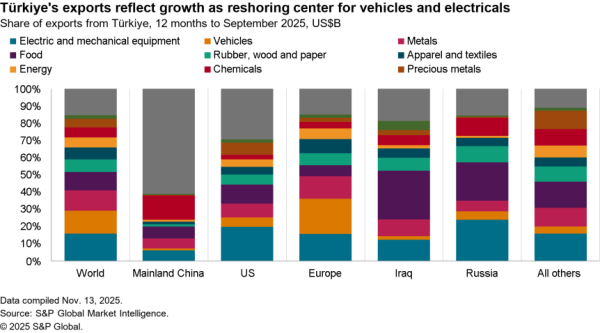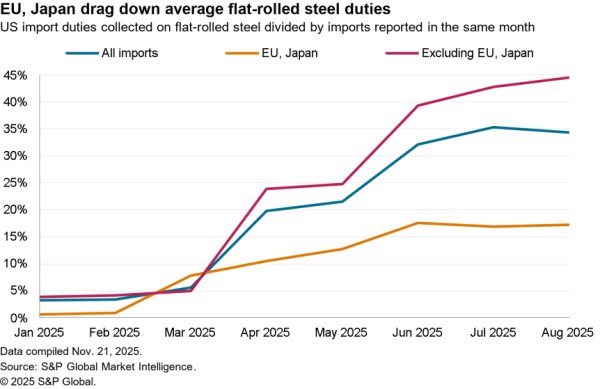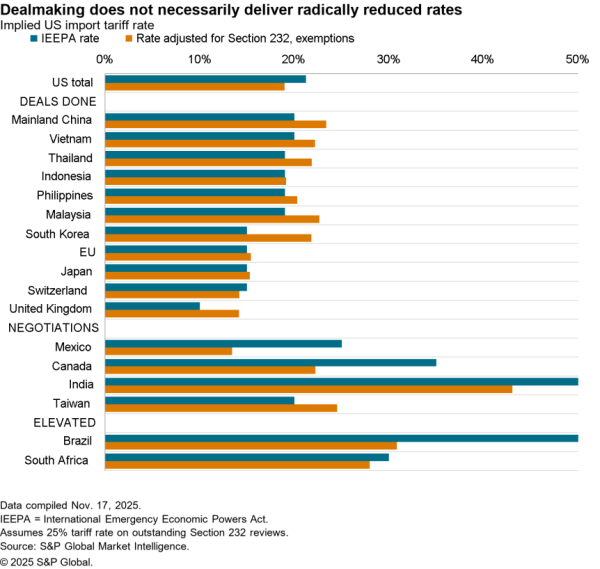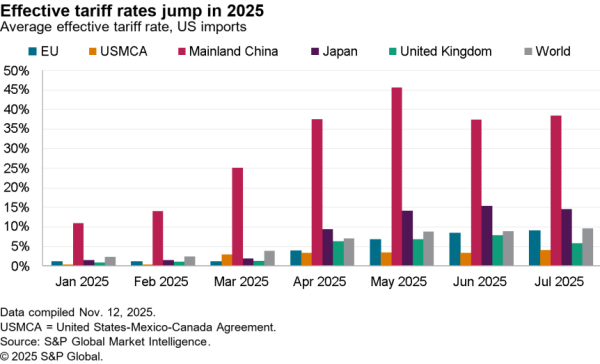At the tail end of the calendar 3Q earnings season, Panjiva’s analysis of 6,400 companies’ conference calls show 20.9% of firms have mentioned tariffs or Brexit. That’s down from 24.7% in prior quarter and was the lowest since 2Q 2018.
That likely reflects prospects of a phase 1 trade deal between China and the U.S. limiting further tariff risks. There’s a risk that companies may be relaxing too soon given remaining challenges for such a deal as outlined in Panjiva’s research of Nov. 27. That said, tariffs have been phased in since July 2018 and so are both well-established and arguably a business-as-usual factor.
The fastest rate of decline in the proportion of companies discussing trade policy has been in the consumer discretionary sector. Discussions in the automotive sector have fallen to 37.6% of firms from 48.6% in the prior quarter. That comes despite doubts about whether section 232 national security duties can be applied by the Trump administration.
Mentions in the retail sector, including discretionary and staples, fell to 32.0% of firms from 37.9% in the prior quarter. For discretionary retail specifically there was a drop to 35.8% from 43.9%. That’s come despite the implementation of list 4A tariffs on imports from China from September and the continued risk of list 4B mid-Dec. The latter will cover a further $155 billion of mostly consumer-related products Panjiva analysis.

Source: Panjiva
Most retailers are following a multi-pronged strategy for dealing with tariffs, with mixed effects. The CEO of discount retailer Dollar Tree, Gary Philbin, has stated that “continued uncertainty regarding trade and the related tariffs, have impacted our business“.
The firm’s strategy includes “the continued support of many vendors to lower costs, the redesign of product or packaging, efforts to shift mix between higher and lower cost products, awarding volume from multiple vendors to our most competitive suppliers, moving product out of China to affect lower landed cost of goods, and our combined teams purchasing power throughout all of Asia, and as always, finding new vendors domestically and in other countries.“
That couldn’t prevent Dollar Tree from missing earnings expectations from analysts, the Wall Street Journal reports, or from it having to cut its earnings outlook.
By contrast, electronics retailer Best Buy has seen the impact of tariffs being inline with its previously stated expectations. The firm’s CFO, Matthew Bilunas, has stated that the firm’s strategy has included five components including “one, bring in products ahead of the tariff implementation; two, decisions around vendor and SKU assortment; three, promotional and pricing strategies; four, sourcing changes; and five, other strategies employed in partnership with our vendors.“
Panjiva’s data for seaborne imports to the U.S. associated with the firm include slashed imports from China which, including Hong Kong, slumped 31.6% lower year over year in October. That followed a 6.2% decline in 3Q.
Nonetheless, China still represents 74.9% of imports linked to the firm in the four months to Oct. 31 – the peak pre-holiday sales season imports – compared to 77.3% in the same period of 2018.
Best Buy may have increased shipments from Asia ex-China by 19.0% year over year in October following an increase of 11.0% in 3Q. Sourcing from the region accounted for 19.6% of the total in the past four months compared to 15.2% in 2018. The shift in the firm’s supply chain hasn’t prevented an overall decline of 24.7% in total U.S. seaborne imports linked to the firm in October after a 5.1% slide in 3Q. There may be a slowing in the firm’s underlying business therefore.

Source: Panjiva




